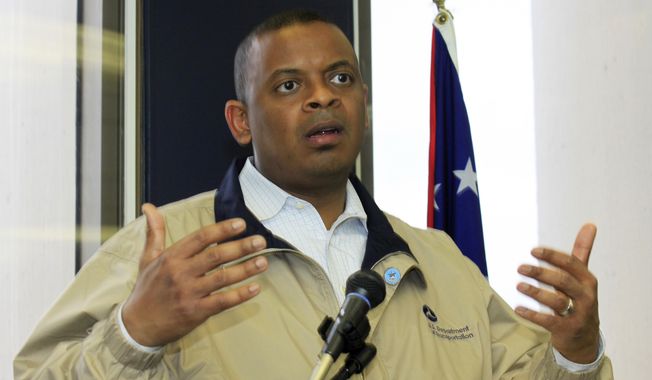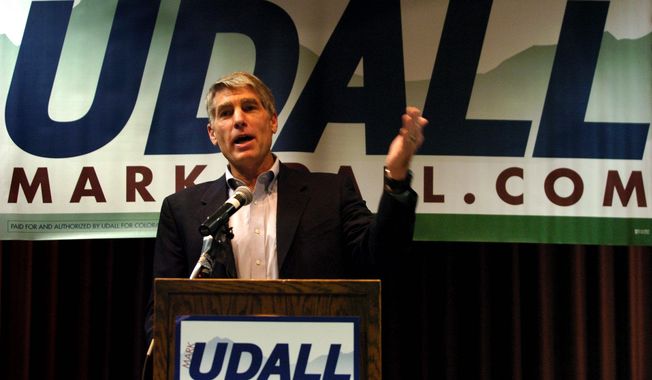THE WASHINGTON TIMES
Articles by THE WASHINGTON TIMES
LETTER TO THE EDITOR: Washington team name should unite, not divide
Having grown up as a Washington Redskins fan, I am saddened by the controversy that has arisen over the team's name. Published June 10, 2014
LETTER TO THE EDITOR: California gun-buyback blowback
Will local taxpayers be promoting the destruction of criminal evidence during a June 14 "anonymous" gun buyback in Santa Barbara, California? Published June 10, 2014
LETTER TO THE EDITOR: Is this the Zappa administration?
First, we witnessed the incongruity of Secretary of State John F. Kerry blustering that Edward Snowden was a coward if he didn't "man up." Published June 10, 2014
LETTER TO THE EDITOR: Bergdahl trade will rightly scare allies
While much attention has been paid to the legality of releasing five Taliban leaders from Guantanamo Bay, there is another, less publicized consequence of this release. Published June 10, 2014
LETTER TO THE EDITOR: Nation grieves with Las Vegas police
The horrific episode that occurred in Las Vegas involving the ambush and shooting deaths of two Las Vegas police officers and a Wal-Mart customer has affected not only Las Vegas, but the entire nation. Published June 9, 2014
LETTER TO THE EDITOR: Stop excusing Bergdahl’s actions
Another trial balloon is being floated about U.S. Army Sgt. Bowe Bergdahl and his conduct while with the Taliban; namely, that he was suffering from Stockholm syndrome. Published June 9, 2014
LETTER TO THE EDITOR: VA debacle an Obamacare harbinger
The Veterans Affairs health-care system is socialized medicine. It is picture of what a single-payer system will look like should President Obama and his fellow progressives get their way. Published June 9, 2014
LETTER TO THE EDITOR: Military credo abused in Bergdahl swap
President Obama and his acolytes have gone to great lengths to tout the '"No man left behind" military credo as a basis for trading away five of the most notorious prisoners at Guantanamo Bay for Sgt. Bowe Bergdahl. Published June 9, 2014
EDITORIAL: The last of the Navajo Code Talkers
Perhaps no one understood better than Chester Nez how the precision of language matters in wartime. Published June 9, 2014
EDITORIAL: End, don’t mend Obamacare
Running out the clock can be wise strategy on the football field, but it's rarely smart politics. Published June 9, 2014
EDITORIAL: Children’s surge of illegals overwhelms southwest border
There's a surge on the border. This is a surge far different from George W. Bush's dispatch of armed might to win the day in Iraq. Published June 9, 2014
EDITORIAL: Songwriter Equity Act inequity
Congress has had a loud voice in setting the price of music since it first got involved with the tinkling player piano, once a fixture of American life from cultivated front parlors to the raucous saloons of the Old West, in 1909. Published June 6, 2014
EDITORIAL: Europe goes negative on interest rates
Europe's economic policies have often seemed a bit daft to us, setting the Continent on a course to bankruptcy. Things got stranger still last week when the European Central Bank turned the entire concept of interest rates on its head. Published June 6, 2014
EDITORIAL: Highway (trust fund) robbery
The Highway Trust Fund is running on fumes, and this is sending certain congressmen and the administration into a tizzy. Published June 6, 2014
LETTER TO THE EDITOR: Outlaw ‘killer’ cars?
A nut with a gun or a knife could cause a problem with a population of 300 million people --- and immediately numerous people would rush to call for outlawing and melting down the steel from all guns and knives. Published June 6, 2014
LETTER TO THE EDITOR: Bergdahl swap disillusions Obama voter
President Obama's ineptitude shines through once again in the swap of U.S. Army Sgt. Bowe Bergdahl for five Taliban detainees. The whole trade was a big mistake. Published June 6, 2014
LETTER TO THE EDITOR: Preserving Indiana’s consumer-driven reforms
I read with interest your editorial on our proposal in Indiana to replace traditional Medicaid with the Healthy Indiana Plan, a consumer-driven program that currently serves about 40,000 low-income people in Indiana. Published June 6, 2014
EDITORIAL: Sodas, cigarettes and the Nanny State
Michael R. Bloomberg, the former mayor of New York City, is all but forgotten, but he's not gone, exactly. Like a New York Yankee who swings for the fences and misses on the first two pitches, His Former Honor took his Big Gulp ban to the state's highest court Wednesday, hoping to avoid a strikeout. Published June 5, 2014
EDITORIAL: Obamacare’s October surprises
Coloradans can expect bad news Friday. Depending on where they live, their health insurance premiums are going up. Published June 5, 2014
EDITORIAL: The EPA’s bumbling regulators
President Obama's latest scheme to send American coal workers to the unemployment lines represents an enormous expansion of the power of the Environmental Protection Agency. The federal environmental bureaucracy can't even manage the power that it has. Published June 5, 2014











